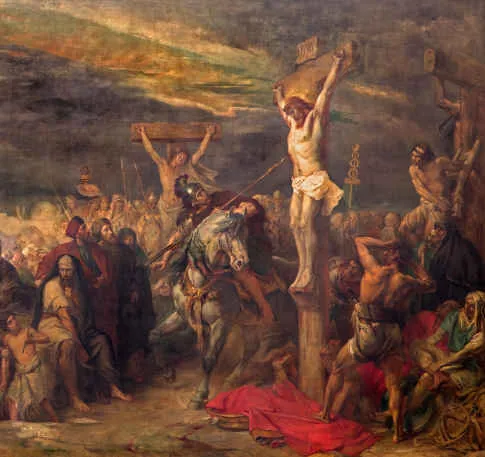The Divine Mercy
Today is the Feast of all Feasts! It is the Feast of Mercy! This Feast originated from the private revelations given to Sr. Maria Faustina Kowolska, a Polish cloistered nun who died in 1938. In the year 2000, she was canonized by Saint Pope John Paul II, and the Feast of Mercy was instituted as a universal Feast of the Church. To better understand this Feast, let’s read some of the private revelations Jesus gave to Saint Faustina:
“Whoever approaches the Fountain of Life on this day will be granted complete forgiveness of sins and punishment” (Diary #300).
“This Feast emerged from the very depths of My mercy, and it is confirmed in the vast depths of my tender mercies” (Diary #420).
“On one occasion, I heard these words: My daughter, tell the whole world about My Inconceivable mercy. I desire that the Feast of Mercy be a refuge and shelter for all souls, and especially for poor sinners. On that day the very depths of My tender mercy are open. I pour out a whole ocean of graces upon those souls who approach the fount of My mercy. The soul that will go to Confession and receive Holy Communion shall obtain complete forgiveness of sins and punishment. On that day all the divine floodgates through which grace flows are opened. Let no soul fear to draw near to Me, even though its sins be as scarlet. My mercy is so great that no mind, be it of man or of angel, will be able to fathom it throughout all eternity. Everything that exists has come forth from the very depths of My most tender mercy. Every soul in its relation to Me will contemplate My love and mercy throughout eternity. The Feast of Mercy emerged from My very depths of tenderness. It is My desire that it be solemnly celebrated on the first Sunday after Easter. Mankind will not have peace until it turns to the Fount of My Mercy” (Diary #699).
“Yes, the first Sunday after Easter is the Feast of Mercy, but there must also be deeds of mercy, which are to arise out of love for Me. You are to show mercy to our neighbors always and everywhere. You must not shrink from this or try to absolve yourself from it” (Diary #742).
“Souls perish in spite of My bitter Passion. I am giving them the last hope of salvation; that is, the Feast of My Mercy. If they will not adore My mercy, they will perish for all eternity” (Diary #965).
“I want to grant complete pardon to the souls that will go to Confession and receive Holy Communion on the Feast of My mercy” (Diary #1109).
In addition to the above quotes about the celebration of the Feast of Mercy, below are some quotes revealing more about The Divine Mercy itself:
“Mankind will not have peace until it turns with trust to My Mercy” (Diary #300).
“My Heart overflows with great mercy for souls, and especially for poor sinners. If only they could understand that I am the best of Fathers to them and that it is for them that the Blood and Water flowed from My Heart as from a fount overflowing with mercy” (Diary #367).
“I desire trust from My creatures. Encourage souls to place great trust in My fathomless mercy. Let the weak, sinful soul have no fear to approach Me, for even if it had more sins than there are grains of sand in the world, all would be drowned in the unmeasurable depths of My mercy” (Diary #1059).
“Tell all people, My daughter, that I am Love and Mercy itself. When a soul approaches Me with trust, I fill it with such an abundance of graces that it cannot contain them within itself, but radiates them to other souls” (Diary #1074).
“My daughter, write that the greater the misery of a soul, the greater its right to My mercy; urge all souls to trust in the unfathomable abyss of My mercy, because I want to save them all” (Diary #1182).
Reflect, today, upon God’s infinite and unfathomable Mercy. The Divine Mercy is especially for those who struggle with sin. Jesus says, “The greater the sinner, the greater the right he has to My mercy” (Diary #723). The Divine Mercy is the very tenderness and compassion of God. Run to Him, trust in Him, open your soul to Him and allow Him to pour forth an ocean of Mercy on this holy day.
Source: https://catholic-daily-reflections.com/2025/04/26/the-divine-mercy-2/













